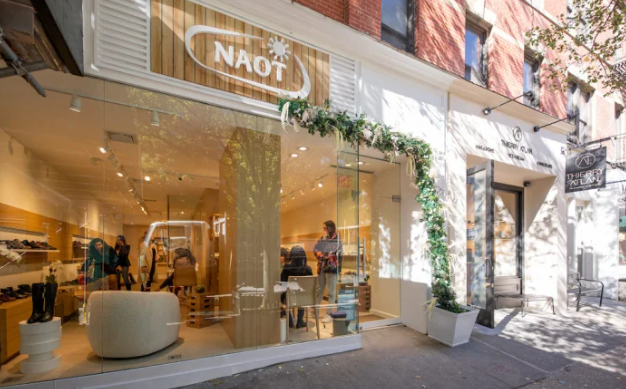Why Israeli Footwear Maker Naot Picked SoHo for Its First NYC Flagship Store
Israeli footwear maker Naot has taken a major step to expand its presence in the U.S. market with a new flagship store.
The comfort-focused brand last month announced the opening of its first New York City-based flagship (its second store location in the U.S.). The new shop is located in Manhattan’s SoHo neighborhood, at 436 W. Broadway and is primarily meant to build brand awareness among consumers in one of the city’s busiest shopping destinations.
“We think it’s a great marketing piece for the brand,” Naot U.S. president Ayelet Lax Levy told FN in a preview of the store in October. “It’s a great presence.”

Naot launched in 1942 from the work of a small collective farming community, or kibbutz, in Northern Israel. Today, the family-owned business sells its sandals, sneakers and boots in the U.S. primarily through wholesale retail partners — and its now two stores in New York. With this new flagship, Naot joins the ranks of other brands flocking to SoHo for visibility among tourists and locals. Salvatore Ferragamo in June opened a new store there. And just last month, Fred Segal opened a 1,600-square-foot pop-up shop in the heart of SoHo.
“The people who pass through here are not just local people, but it’s also a tourist destination in New York. So it will only enhance the brand presence for our retailers,” Lax Levy said.
The Israeli footwear company opened its first flagship store in 2017 in Woodbury, N.Y. Located near the company’s U.S. offices, this store functions as a way to test product in the market and see what’s working. The SoHo store is meant to serve a marketing function in a central shopping location, allowing consumers to experience the brand. Naot also plans to donate some of its shoes to a local charity in New York City to further establish its connection to the neighborhood.
When it comes to future expansion plans, Lax Levy said Naot will be selective and has no plans to embark on an aggressive store expansion plan across the country, especially if it threatens the presence of its retail partners.
“If it makes marketing sense and strategic sense then we’ll look at that,” she said.
